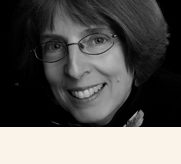 Ask a novelist what he or she is working on, and you’re apt to get a rambling answer because the process of writing a novel is often long and messy. Novels explore the lives of multiple characters, develop multiple plots and subplots—you get what I’m saying. Novels are complicated. So it almost seems unfair that if the writer hopes to query an agent with the completed masterpiece, it’s necessary to boil the whole thing down to a single sentence. Known as a logline (novelists have screenwriters to thank for this term), this one sentence gem can take weeks to perfect. But the time spent is worth the effort, as a well-written logline can lead to a quick sale.
Ask a novelist what he or she is working on, and you’re apt to get a rambling answer because the process of writing a novel is often long and messy. Novels explore the lives of multiple characters, develop multiple plots and subplots—you get what I’m saying. Novels are complicated. So it almost seems unfair that if the writer hopes to query an agent with the completed masterpiece, it’s necessary to boil the whole thing down to a single sentence. Known as a logline (novelists have screenwriters to thank for this term), this one sentence gem can take weeks to perfect. But the time spent is worth the effort, as a well-written logline can lead to a quick sale.
To craft a logline, the writer must focus on the protagonist and his/her emotional journey, letting go of sub-plots and secondary characters. To read examples of loglines, take a moment to peruse posts in “The Next Big Thing” blog chain.
Thank you to writer Virginia Pye, author of the 2013 debut River of Dust, for inviting me to participate in “The Next Big Thing”—a set of questions for writers about what they’re working on, or what book is coming soon. Here are my answers:
What is your working title of your book (or story)?
Brotherhood
What is the one-sentence synopsis of your book?
A 14-year old boy struggles to protect a friend from the gang he has joined (the K.K.K. in 1867).
Where did the idea come from for the book?
This book began with a feeling more than an idea. As a young boy in the South in the 1930’s, my father felt stuck and vowed never to raise his own children there. Growing up in Pennsylvania, I would ask why he wanted out, and he’d duck my questions, shake his head, grow pensive and say things like, “You can judge people in any number of ways, but don’t ever judge them by the color of their skin.” Never the answer I expected. So I began to wonder what would make a shy, gentle white boy vow to flee the South. What did he see that he refused to talk about? While my dad never got involved with the Ku Klux Klan, I know that the Klan wreaked havoc in the South during Daddy’s growing up years. I began to imagine what sorts of influences would lead a boy to join a gang—a brotherhood—then yearn to get out but not be free to leave. The book grew from that sense of yearning.
What genre does your book fall under?
Young Adult
Which actors would you choose to play your characters in a movie rendition?
For the brothers, I’d go with Luke Benward and Sterling Beaumon. For Rachel, the freed slave who becomes a teacher, Keke Palmer would be awesome, but if Hollywood waits five years before filming, then Willow Smith will be old enough for the role.
Will your book be self-published or represented by an agency?
I’m represented by Leigh Feldman at Writers House, and Brotherhood will be published by Viking/Penguin. My editor there is Regina Hayes.
How long did it take you to write the first draft of your manuscript?
About two years for the first draft, and another year and a half for multiple additional drafts.
What other books would you compare this story to within your genre?
I’m a fan of Laurie Halse Anderson‘s historical fiction—books such as Fever 1793, and Chains, and Forge. If readers come to compare my book to hers, that would be fabulous!
Who or what inspired you to write this book?
One of my boys is a reluctant reader, so I set out to write a novel that even a boy—my boy—would read.
What else about your book might pique the reader’s interest?
My protagonist (a Klan member) befriends a freed slave girl who’s spunky and smart. He must keep the friendship secret, as the year is 1867, a time when distrust smoldered between the races. While most post-Civil War books address America’s political landscape, my book is all about the people—about what it might have felt like to live through the tumultuous times that we’ve come to call The Period of Reconstruction.
I’ve invited debut novelists to participate in “The Next Big Thing” blog chain. Next week, look for blog posts from Melanie Crowder, author of Parched; Cat Winters, author of In the Shadow of Blackbirds; and L.R. Giles, author of Fake ID.
